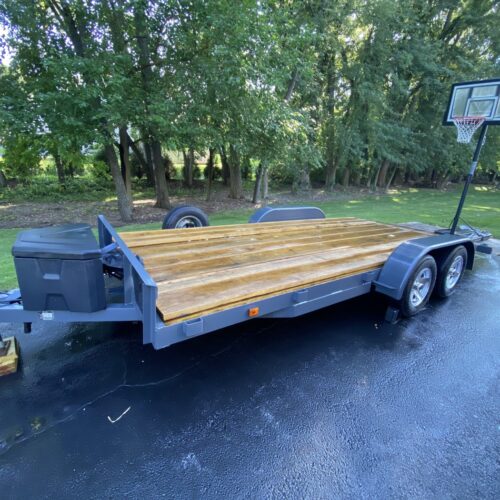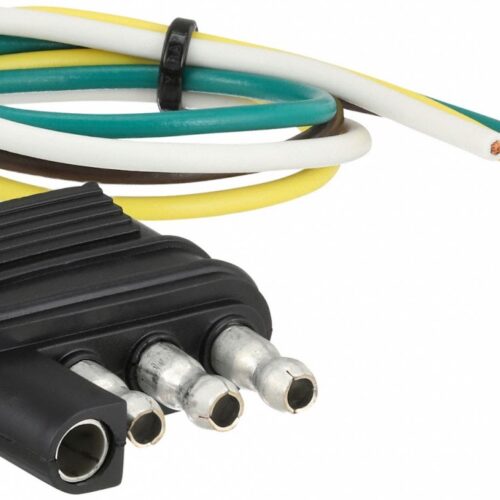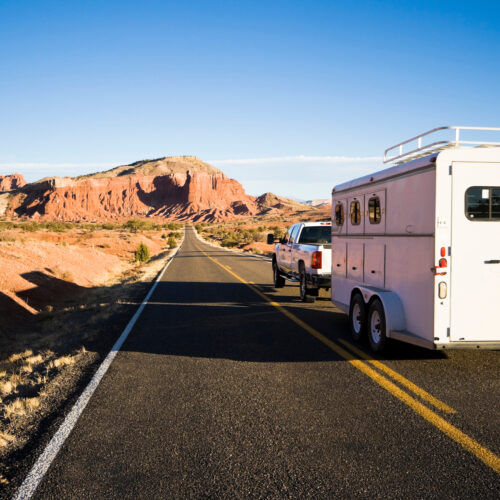If you’re planning to tow a trailer in New Hampshire, it’s crucial to familiarize yourself with the state’s specific towing laws. Whether you’re transporting equipment, vehicles, or recreational items, understanding the regulations will help ensure a safe and legal journey. Here’s a breakdown of the key laws and guidelines for towing a trailer in the Granite State.
1. Trailer Registration
In New Hampshire, all trailers weighing over 3,000 pounds must be registered. This includes trailers used for personal, recreational, or commercial purposes. The registration process involves providing proof of ownership, such as a bill of sale, and paying the required fees. It’s also essential to display the registration plate clearly on the trailer.
2. Towing Vehicle Requirements
Your tow vehicle must be adequately equipped to handle the weight of the trailer. New Hampshire law requires that the towing vehicle’s gross vehicle weight rating (GVWR) is suitable for the combined weight of the vehicle, trailer, and cargo. Exceeding the GVWR can lead to fines and increased risks of accidents.
3. Brake Requirements
Trailers with a gross weight of 3,000 pounds or more must be equipped with brakes. These brakes must be capable of being applied by the driver from inside the towing vehicle and must function effectively on all wheels of the trailer. Additionally, the brake system should include a breakaway feature, which automatically applies the brakes if the trailer becomes detached from the towing vehicle.
4. Safety Chains
Safety chains are a must when towing a trailer in New Hampshire. These chains act as a secondary connection between the towing vehicle and the trailer. They should be crossed under the trailer tongue to prevent it from dropping to the ground if the primary hitch fails. The chains must also be strong enough to control the trailer if it becomes disconnected.
5. Lighting Requirements
Proper lighting is critical for trailer safety. New Hampshire law mandates that trailers have functioning tail lights, brake lights, and turn signals. Additionally, trailers over 3,000 pounds must have reflectors and side marker lights. Ensuring that all lights are operational and visible is essential for the safety of you and other drivers on the road.
6. Speed Limits and Restrictions
While New Hampshire does not have specific speed limits for vehicles towing trailers, drivers must adhere to the posted speed limits and drive according to road conditions. It’s also advisable to reduce speed when towing, especially on winding roads or in adverse weather conditions, to maintain control of the vehicle and trailer.
7. Trailer Size Limits
New Hampshire has specific size limits for trailers. The maximum allowable width is 102 inches (8.5 feet), and the maximum allowable length is 45 feet for a single trailer. For a combination of vehicles, including the towing vehicle and the trailer, the total length must not exceed 65 feet. Oversized trailers may require special permits and adherence to additional restrictions.
8. Weight Limits
The weight of the trailer and its cargo should not exceed the manufacturer’s recommended limits. In New Hampshire, the total combined weight of the towing vehicle, trailer, and load must not exceed the lesser of the GVWR of the towing vehicle or the gross combined weight rating (GCWR) of the towing vehicle and trailer. Exceeding weight limits can lead to fines and increased safety risks.
9. Overtaking and Lane Usage
When towing a trailer, drivers must stay in the right-most lane on multi-lane highways unless overtaking or making a left-hand turn. This law helps maintain the flow of traffic and reduces the risk of accidents. Additionally, it’s essential to allow extra space when passing other vehicles, as trailers require more distance to maneuver safely.
10. Towing at Night
New Hampshire law requires that trailers have proper lighting when towed at night. This includes functioning tail lights, brake lights, turn signals, and reflectors. It’s also advisable to use additional lighting or reflective tape to increase the visibility of the trailer in low-light conditions.
Conclusion
Towing a trailer in New Hampshire requires careful attention to state laws and regulations. By ensuring your trailer and towing vehicle meet all legal requirements, you can enjoy a safe and hassle-free towing experience. Always double-check your trailer’s registration, lighting, brakes, and safety equipment before hitting the road. Safe travels!




